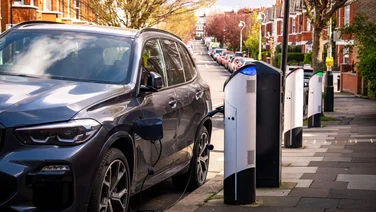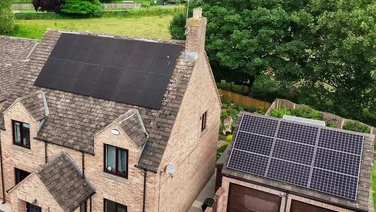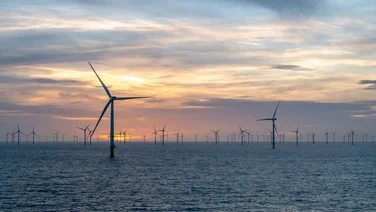We receive a small fee from trusted installers when you request a quote through our site. This helps us keep our content independent, well-researched and up to date – Learn more
With one million species at risk of dying out, Sir David Attenborough’s most recent documentary (Extinction: The Facts, aired 13th September on BBC) offers a stark look at the devastation that humans are wreaking on the planet.
Unlike his usual documentaries, Attenborough is not here to highlight the breathtaking wonders of life on Earth – but is here to issue us all with a severe warning.
“It’s never been more important for us to understand the effects of biodiversity loss, or how it is that we are ourselves are responsible for it.” Attenborough opens the documentary with, “Only if we do that, will we have any hope of averting disaster.”
Here, we look at the key takeaways from this heartbreaking documentary, the impact on our planet, and what we need to do now to make a change.
How are we destroying ecosystems?
Illegal animal trafficking
Illegal animal trafficking has been going on for decades – whether they’re used as a status symbol or for medicinal uses, it’s happening on a huge scale.
The key example given in this eye-opening documentary is the pangolin – a scaly mammal found in parts of Asia and Africa. Pangolins are the most trafficked animal in the world, sold for their scales, which are said to have medicinal purposes. According to Nikki Wright, Wildlife Rehabilitation Specialist, 175,000 pangolins were killed for the scale trade in 2019 alone.
The most frustrating part about of all this? It has been scientifically proven that these scales have no medicinal value.
Overfishing
Attenborough moves swiftly onto our next downfall: destroying the natural balance of fish in the world’s oceans. He states “At any one time, there could be as many as 100,000 fishing trawlers in our seas”.
Rather than fishing in a sustainable way for a long period of time, we’re overfishing for a short period of time. There’s only so long this can go on for.
As we remove more adult fish from the ocean, we’re also removing eggs – this means animals are unable to reproduce as frequently. A huge reduction in fish also means prey will struggle to feed themselves.
A higher global population leads to higher consumption
One of the reasons there is a growing demand for natural resources because our population is increasing. However, the documentary is quick to point out that although the population rate is much higher in developing countries, it’s the Western economies that are consuming more than we need.
According to Attenborough, the average Brit consumes four times the amount of the average person in India – and in the US, this figure rises to seven times as much!
Polluting environments
Although the UK has put more laws in place to protect natural resources, compared to some developing countries, we rely heavily on imported goods from other countries, which increases global pollution.
“We are simply moving our footprint of destroying nature onto another country” – Sir Robert Watson, Chair of the Intergovernmental Panel on Biodiversity Ecosystem Services (IPBES)
Speeding up climate change
The Paris Agreement’s central aim is to keep a global temperature rise well below 2 degrees celsius above pre-industrial levels. However, according to Sir Robert Watson in the documentary, we are in fact “on track to a 3 or 4 degree celsius world”.
Not only does this alter habitats around the world – with more wildfires and melting ice caps – but it also changes breeding patterns and migration movements.
Destruction of habitats
Our world is losing nature at a rapid rate. We’ve already lost 90% of the wetlands across the world, we’ve transformed the forests and grasslands – a lot of it just to feed one species.
One of the most surprising learning from this documentary is that there is now enough land, which has already been cleared to sustain necessary levels of production – but new land is still being cleared because it is often quicker and cheaper to do so.
Dr Toby Gardner, Director at Transparency for Sustainable Economies, pointed out that the key culprits for biodiversity land loss are soy, coffee, cocoa, palm oil, and beef.
What is the result?
- Loss of animal diversity – We are losing animal species at an unprecedented rate – with over 1 million animals now at risk of extinction. Dr Stuart Butchart, Chief Scientist at BirdLife International states that, “Since 1970, vertebrae animals have declined by 60% in total.”
- Loss of soil diversity – Professor Richard Bargett, Soil Ecologist states that “Up to 30% of the land’s surface globally has degraded and has soils with low biodiversity.” The result? A shortage of food production. Since animals that live in the soil break down matter, they shape how plants regrow
- Loss of plant diversity – One in four plants are now at risk of extinction – and since everything in the food chain is connected, this will have a catastrophic impact on the world. This will change the air we breathe, the concentration of CO2 in the air, how clean our waters are, and it will increase the number of natural disasters
- Increases in pandemic diseases – Professor Felicia Keesing, Disease Ecologist, puts forward to the argument that “One of the most obvious ways that we’re making it more likely that a virus would jump up is that we’re having lots of contact with animals.” Destroying habitats, expanding agriculture, and opening wet markets are just a few examples of how we’re encroaching into nature.
Blue line natural extinction rate.
Red line current extinction rate.
We did this. #ExtinctionTheFacts pic.twitter.com/oHoFD6nLmK
— Jack Wallington (@jackwallington) September 13, 2020
How can we prevent mass extinction?
- Build back from coronavirus with economies that can co-exist with nature
- Repair the damage we’ve done by planting trees, conservating habitats, and cleaning waterways
- Find ways to produce affordable food without expanding any further habitat loss
- Reduce chemicals and pesticides in agriculture
- Push for a new standard of strict laws on imports, pollution, and conservation
- Educate children on the environmental and ecological issues
- Look at our own lifestyles

Key ways we can transform our own lifestyles
- Ditch single-use plastic – Look into reusable alternatives
- Reduce your travel emissions – Use public transport as much as possible or even invest in a bike
- Consider what you consume – Reduce the amount of red meat and dairy that you eat, as well as soy, coffee, and cocoa
- Avoid fast fashion – Look into sustainable fashion brands, vintage stores, online second-hand-clothes apps
- Go cruelty-free – don’t buy from brands who test on animals
- Buy your fruit and veg from a local market – You can also look into apps like Oddbox that reduce global food waste
Towards the end of the documentary, Attenborough steps back into his usual territory of observing the beauty of nature, with a sprinkle of optimism. We take a peek into a highlight of Sir David’s career: his meeting with Rwanda’s mountain gorillas 40 years ago.
At the time, just 250 individuals in this species were left and their future looked bleak. But today, the population has bounced back – all thanks to new government laws, local communities, and volunteers working together.
We must look at this as an example of what can be done if we combine our skill sets to work towards saving not just one species, but one million of them. As Attenborough says in the final scene, “What happens next, is up to every one of us”.






